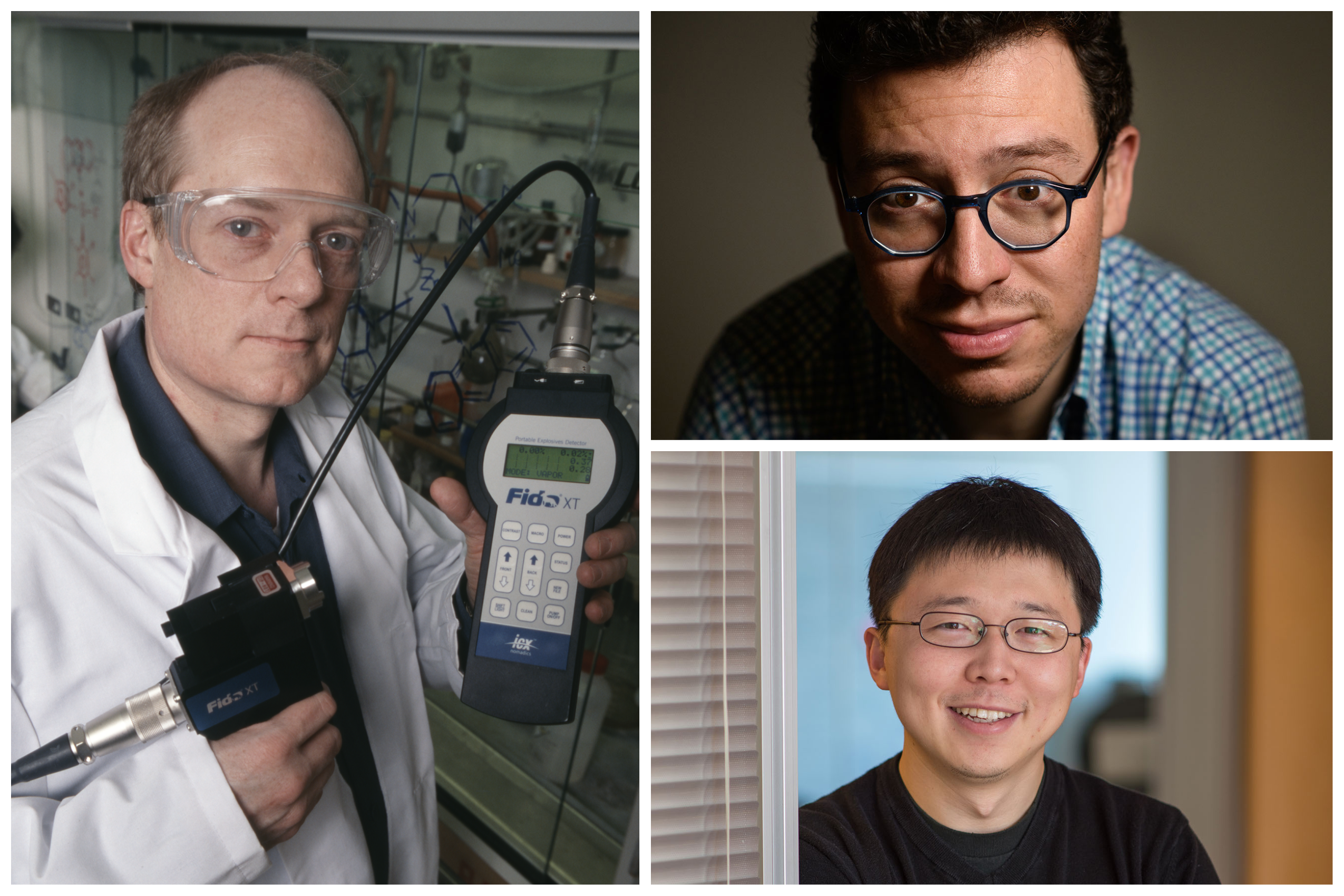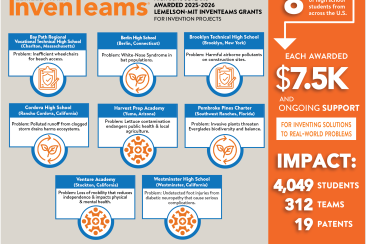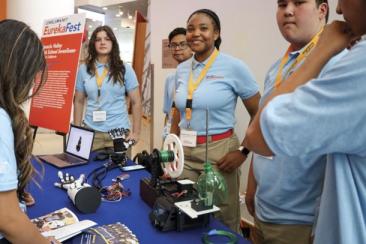THREE LEMELSON-MIT PRIZE WINNERS NAMED 2020 NAI FELLOWS

Luis von Ahn, Feng Zhang, and Timothy Swager Honored as Fellows of the National Academy of Inventors
CAMBRIDGE, Mass (Dec. 8, 2020) — Today, Lemelson-MIT Prize winners, Luis von Ahn, Feng Zhang, and Timothy Swager have been named Fellows of the National Academy of Inventors (NAI).
The NAI Fellows Program highlights academic inventors who have demonstrated a spirit of innovation in creating or facilitating outstanding inventions that have made a tangible impact on quality of life, economic development and the welfare of society. Election to NAI Fellow is the highest professional distinction accorded solely to academic inventors. NAI Fellows hold more than 42,700 issued U.S. patents to date, which have generated over 13,000 licensed technologies and companies, and created more than 36 million jobs. Additionally, over $2.2 trillion in revenue has been generated based on NAI Fellow discoveries. A new report commissioned by the Lemelson-MIT Program and The Lemelson Foundation will unveil the estimated economic impact of all Lemelson-MIT Prize winners in early 2021.
Guatemalan entrepreneur and 2018 Lemelson-MIT Prize winner, Luis von Ahn is the co-inventor of Duolingo, the educational, free language-learning platform that has over 300 million users worldwide. Von Ahn received his bachelor’s degree in mathematics from Duke University in 2000, and earned a PhD from Carnegie Mellon University in 2005. His doctoral thesis introduced “human computation,” (better known as crowdsourcing), which became the foundation for his earlier work on CAPTCHA, reCAPTCHA and Games With A Purpose. Von Ahn joined the faculty at the Carnegie Mellon School of Computer Science in 2006. Currently, von Ahn focuses on Duolingo full time as CEO. He sits on the board of directors of the U.S. Foundation of the University of the Valley of Guatemala, where he helps shape the future of education in the country. The multiple patent holder has been named a MacArthur Fellow, one of the 10 Most Brilliant Scientists by Popular Science Magazine, one of the 50 Best Brains in Science by Discover, a Top Young Innovator Under 35 by MIT Technology Review, and one of the 100 Most Innovative People in Business by Fast Company Magazine. His TED Talk, “Massive-scale online collaboration,” has been viewed millions of times.
Feng Zhang is the 2017 Lemelson-MIT Prize winner for his work in the development of CRISPR technology and optogenetics. His team was first to harness CRISPR as a tool for genome editing, as described in a landmark paper in Science on January 3, 2013. Zhang studied chemistry and physics at Harvard before heading to Stanford University for his doctoral work, where he played a central role in studying optogenetics as a method for manipulating brain activity. Zhang received a Harvard Junior Fellowship in 2009, to help develop a new method of gene editing through the adaptation of TAL effectors (TALEs), sequence-specific DNA-binding proteins found in plant pathogens that alter gene expression in plants. Zhang joined the MIT faculty in 2011 and became a core member of the Broad Institute of MIT and Harvard. At MIT, he is also an investigator at the McGovern Institute for Brain Research, the James and Patricia Poitras Professor in Neuroscience, and associate professor in the departments of Brain and Cognitive Sciences and Biological Engineering. Zhang is on the board of trustees for the Center for Excellence in Education, a nonprofit that supports student careers in STEM. His many awards include the Vilcek Prize for Creative Promise, the 2016 Tang Prize and the Society for Neuroscience Young Investigator Award.
The John D. MacArthur Professor of Chemistry at MIT and 2007 Lemelson-MIT Prize winner, Timothy M. Swager is a leader in molecular electronic based designs. Swager received a BS from Montana State University in 1983, and then went to the California Institute of Technology for graduate and doctoral work. He took a post-doctoral assignment at MIT in 1988, later becoming an Assistant Professor at the University of Pennsylvania in the early 1990s. Among Swager's notable inventions is an amplified chemical sensor that uses molecular wires to detect the presence of vapors from explosives, such as TNT. The sensors are licensed to Nomadics, now a unit of ICx Technologies, a company that created an explosives-detection device called Fido®—so named for its similarities to a bomb-sniffing dog. Swager returned to MIT in 1996 as a faculty member. He holds 39 patents, is an elected member of the National Academy of Sciences, a Fellow of the Division of Polymer Chemistry, the John Scott 2008 Award winner, and the Carl S. Marvel Creative Polymer Chemistry Award winner in 2005, among other distinctions.
The class of Fellows will be inducted at the 2021 Fellows Induction Ceremony at the Tenth Annual Meeting of the National Academy of Inventors this June in Tampa, Florida.





